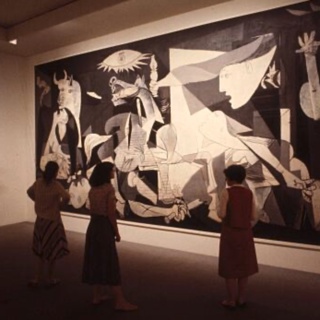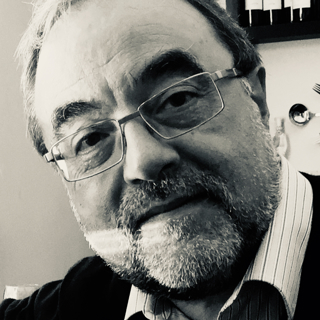
Luis Martin Cabré - Ferenczi’s Legacy in Winnicott’s Work.
In this episode Luis Martin Cabré will show the influence that Ferenczi's thinking about the feminine and the child mind (especially in some of his clinical experiences and theoretical intuitions) had on the development of many of the concepts that Winnicott established in psychoanalytic thought, and which have endured to the present day. Since, as in Winnicott's case, Ferenczi was practically excluded from readings and discussions among analysts for many years, the hypothesis is that psychoanalytic transmission is not only carried out from reflection and theoretical study but also on an unconscious level and transgenerational manner. Luis Martin Cabré is past President and full member (with didactic functions) at the Asociación Psicoanalítica de Madrid (APM). He is full member of the Italian Psychoanalytic Society (SPI) and an accredited member as a child and adolescent psychoanalyst. He is also a full member of the Spanish Society of Psychiatry and Psychotherapy of Children and Adolescents, Founding member of the International Foundation "Sándor Ferenczi" and member of the European Editorial Board of the International Journal of Psychoanalysis and the American Journal of Psychonalysis. Further to this he is the European Representative on the IPA Board (between 2015-2019) and collaborating member of the Instituto Universitario de Salud Mental - IUSAM. Link to the paper https://drive.google.com/file/d/1lhGgJz7fwoX_yd6b39a7BFw09g0D0l3g/view?usp=sharing This episode is available also in Spanish and Italian.
18 Nov 202041min
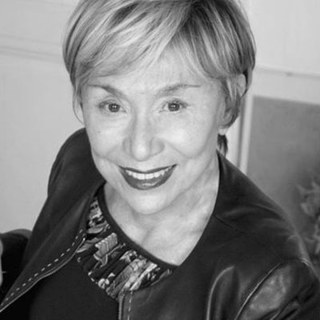
Julia Kristeva - Not Only is There no such Thing as Perversion, moreover we are all Perverse by the Mother-version.
© photo J Foley/Opale In today’s episode Julia Kristeva will comment on Ilse and Robért Barande’s report, presented at the 42nd Congress of French Speaking Psychoanalysis in 1982 with the title “Antinomies in the concept of perversion and paradoxes in its application to psychoanalytic theory and practice”. A new short version will be published in one of the next issues of the Revue Française de psychanalyse for which she has written the introduction. Indeed, she found this report to be “provocative, heavy-handed and of obvious interest in our contemporary times of pandemic and lock down”. Madame Julia Kristeva is a prolific author, training psychoanalyst at the Psychoanalytic Society of Paris and emeritus professor at the University of Paris 7. Among many books we will only mention a few: Black Sun, A Trilogy; Female Genius: Hanna Arendt; Melanie Klein and Colette; Powers of Horror; Tales of Love; New Maladies of the Soul; Hatred and Forgiveness. Her last book, Dostoyevsky, came out in 2019. This episode is available also in French
11 Nov 202035min
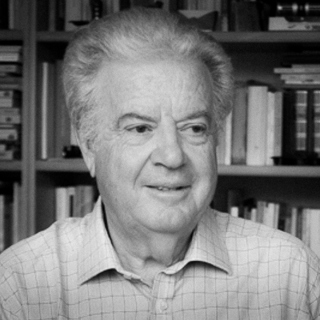
Claudio Neri - Vitality, Vitalism and Shame.
In this episode, Claudio Neri presents his article on "Vitality, Vitalism and Shame". Through a rich narrative, ranging from the memory of his encounter with Bion, to ethnopsychological studies on expressions of anger or joy, to the Myth of Anteo that shows the importance of contact with a safe and revitalizing object, Claudio Neri raises two questions: how can we distinguish natural vitality from exasperated vitalism? And what role does shame play in this presenting itself to others without the armor of one's own defenses? If enthusiasm is contagious, it is possible, however, to observe how sometimes some individuals may not tolerate being close to a vital subject. The contagion effect, which emanates from the enthusiastic person, in fact puts them at risk of losing their balance. People who are depressed or very controlling, for example, may feel that the enthusiasm activates an aspect of themselves that they must strictly keep at bay. What should the psychoanalyst finally do when the shame and the parade of embarrassment and fear are so intense as to prevent one of his patients from approaching vitalizing experiences? Claudio Neri, MD, is Training and Supervising Analyst at the Italian Psychoanalytic Society, a founder member of the International Field Theory Association. He is also a member of the the editorial board of the “European Journal of Psychotherapy and Counselling”; “Revue de Psychothérapie Psychanalytique de Groupe”; “Clínica y Análisis Grupal” and of the “Revista de Psicoànalisis de las Configuraciones Vinculares”. He has published articles and books, primarily on the tecnique and theory of treatment. His work has been translated into six languages. link to the paper https://drive.google.com/file/d/1LI_Qi9es_zCAPUc_uoFetrzy9-0XOf-i/view?usp=sharing This episode is read by Brook Barbieri. https://www.claudioneri.it This episode is available also in Italian, Spanish, French.
4 Nov 202023min
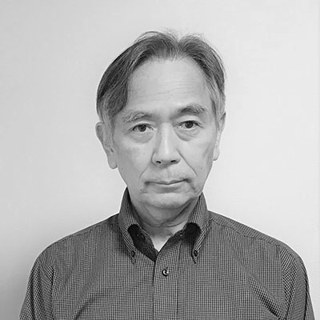
Kenichiro Okano - A Japanese psychoanalyst concerned with shame and dissociation.
In this episode Dr. Kenichiro Okano displays how shame and social phobia could manifest differently between the Eastern and the Western countries, and investigates them from a psychoanalytical point of view. With his personal history of becoming a bicultural psychiatrist and psychoanalyst in the United States and in Japan, he considers that while passivity and non-action induced by shame can be misunderstood in Western culture, it can potentially exert some paradoxical power and influence, at least in the Japanese society. In its conceptualizations, the dissociation construct plays a central role, consistent with its research and clinical experience. Dr Kenichiro Okano is a Japanese psychiatrist and psychoanalyst, and professor of Clinical Psychology at Kyoto University Department of Education. He is a training and supervising analyst in the Japan Psychoanalytic Society. He is the author of 26 books on psychoanalysis, dissociative disorder, and neurobiology. In 2016 he won The Japanese Psychoanalytical Association’s Distinguished Publications Award. This episode is available also in Japanese
28 Okt 202017min
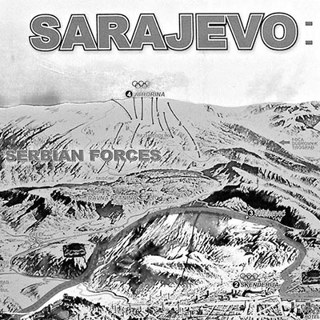
Sophia Peer Group - To repair, or to repeat?
In this episode we’ll present the work of a psychoanalytical peer group. A “peer group” is made up of colleagues who choose to work together to explore a certain topic or to achieve a specific goal. Sophia Group consists of five members from different republics that emerged after the dissolution of Yugoslavia. The goal of this group is to try to dream in the group and work all material out to be able to hold the group and use it as a container for various experiences that the members of the group have. In this podcast, one of the members of the group introduces it with general remarks on goals and processes in the group. Next Dr. Giovanni Foresti talks about his experiences with the group as its organizational consultant. Last one to talk is Dr. Paolo Fonda who emphasizes his experiences with the dissolution of the Yugoslavia and war traumas that emerged from it. He also talks about how such groups can serve broader social purpose. We hope in this way to show how group work can be used to help people overcome their differences and prevent bloody conflicts such as Yugoslavian one, and also trauma healing processes after such events.
22 Okt 202021min
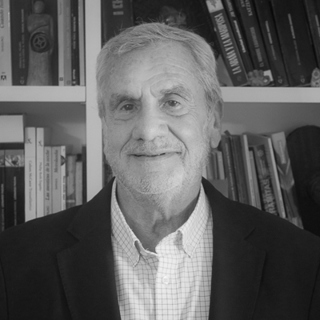
Carlos D. Nemirovsky - Winnicott and Kohut on Intersubjectivity and Complex Disorders.
In this episode, Carlos D. Nemirovsky presents an excerpt from his latest book: “Winnicott and Kohut on Intersubjectivity and Complex Disorders. New perspectives for Psychoanalysis, Psychotherapy and Psychiatry”. This book suggests that we need conceptualizations that encompass new clinical phenomena observed in present-day patients, considering that the traditional definitions of basic psychoanalytic notions are no longer comprehensive enough, due to the complexity of scientific developments within and beyond the psychoanalytic field. From this perspective, clinical practice with complex patients can particularly benefit from Winnicott and Kohut’s ideas, for these authors see each patient as unique, and are in direct contact with empirical facts. Carlos D. Nemirovsky is a Training Analyst, Supervisor and President of the Buenos Aires Psychoanalytic Association. He is Professor of Psychoanalysis at the Institute of Mental Health, Full Member of the IPA and Member of the International Association for Relational Psychoanalysis and Psychotherapy. He is author of numerous articles and books and has published in the APdeBA journal Psychoanalysis, and online in www.aperturas.org and www.psicoterapiarelacional.es. Intersubjectivity and Complex Disorders. New perspectives for Psychoanalysis, Psychotherapy and Psychiatry. Routledge, London, 2020. This episode is available also in Spanish
13 Okt 202018min
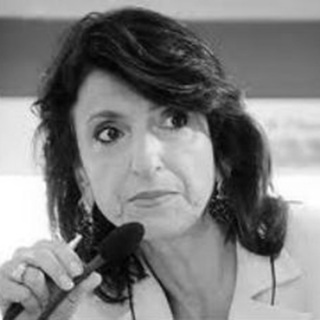
Marie-Thérèse Khair Badawi - Being, Thinking, Creating.
In this episode, Marie-Thérèse Khair Badawi presents her paper: “Being, Thinking, Creating: When War Attacks the Setting and the Transference Counter-Attacks”. This text, published in 2011 concerning the attack of the psychoanalytical setting in war conditions, has revealed the interest of many psychoanalysts during the Covid-19 pandemic which attacks also the setting. The questioning trying to find an issue in a situation of war where the psychoanalysts and their patients are facing the same trauma against the unpredictable which attacks the invariance of the setting, seems to be a similar problematic in these two traumatic states and … even maybe to many others! Marie-Thérèse Khair Badawi PHD, is Training Analyst of the International Psychoanalytical Association, member of the European Psychoanalytical Federation, of the Paris Psychoanalytical Society, co-founder and first President of the Lebanese Association for the Development of Psychoanalysis, the first IPA study group in an Arab speaking country. She is Professor Researcher at Saint-Joseph University of Beirut. Author of numerous publications translated from French to several languages among which one german translation was selected and many published in the Revue Française de Psychanalyse and the International Journal of Psychoanalysis. She has studied in depth themes on war, trauma, incest and sexuality, specially female sexuality and sexual identity. Her PHD thesis "Le désir amputé” published at L'Harmattan, Paris, 1986, is considered by UNESCO as one of the first reliable studies on female sexuality in the Middle East. This text has been published in ten different languages and the version you can listen to in the podcast has been reduced for privacy reasons. For a complete reading of the paper please refer to: Badawi, M.-T. (2011). Being, Thinking, Creating: When War Attacks the Setting and the Transference Counter-Attacks. Int. J. Psycho-Anal., 92(2):401-409. Badawi, M.-T. (2011). Être, penser, créer : quand la guerre attaque le cadre et que le transfert contre-attaque. Rev. Franç Psychanal, 75(4):1035-1043. "Le désir amputé" L'Harmattan, Paris, 1986. This episode is available also in French and Italian
6 Okt 202030min
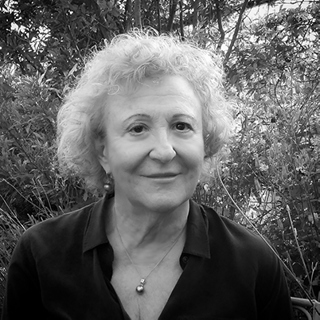
Irene Ruggiero - Adolescent Dynamics in the Analysis of Adults.
In this episode Irene Ruggiero explores the developmentof the subjectivation process with the aim of demonstrating how adulthood analysis of adolescent problems that have not been worked through constitutes an essential condition for reopening an unfinished subjectivation process. The re-elaboration of suspended adolescent dynamics in adulthood analysis re-ignites a process of spiral temporality, opening up the possibility of reconsidering both adolescent and childhood experiences in the double temporality established by psychoanalytic listening. Irene Ruggiero, is a Full Member and Training Analyst of the Italian Psychoanalytical Society and of the International Psychoanalytical Association. She is Secretary of the National Commission for the psychoanalysis of children and adolescents, former Scientific Secretary and President of the Psychoanalytic Center of Bologna. She has actively participated in the scientific life of SPI, IPA and EPF, and is the author of numerous publications in the most important Italian and foreign Journals, as well as in collective volumes. Among her main areas of interest: the adolescence, the body and the analytical relationship. On these topics, she has recently edited two volumes: with Anna Nicolò, "La mente adolescente e il corpo ripudiato"; and, with Nicolino Rossi, "La relazione analitica". Episode read by Danielle Mitzman, broadcast journalist. Link to the paper https://drive.google.com/file/d/11Q0LTUpjUuGxqtgTBnpI7sbZVDIk1HxU/view?usp=sharing Reference to the full paper Ruggiero, I. (2015). Adolescent Dynamics in the Analysisof Adults and Reopening of the Process of Subjectivation. The Italian Psychoanalytic Annual, 9:7-24 La mente adolescente e il corpo ripudiato, (2016) Franco Angeli La relazione analitica, (2016) Franco Angeli This episode is available also in Italian
29 Sep 202029min
